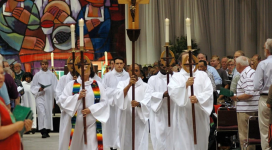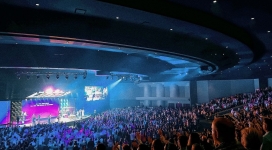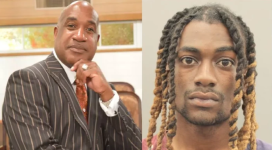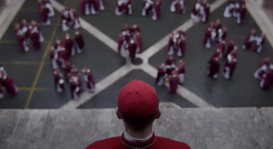Widening rifts in the Episcopal Church are making headlines across the media and the seemingly ceaseless talks over a possible schism in the church have pushed Christians to "set the record straight" in defense of severed ties.
"When even President Gerald Ford's funeral at Washington National Cathedral is not exempt from comment about the crisis in the Episcopal Church, we believe it is time to set the record straight as to why our church and so many others around the country have severed ties with the Episcopal Church," stated the Rev. John Yates and Os Guinness of The Falls Church in The Washington Post. The Falls Church is one of the largest Virginia churches that voted last month to leave the Episcopal Church.
Even prominent evangelical leader Chuck Colson stepped into the argument to point out a "much broader" issue than the matter of homosexuality.
Since the 2003 consecration of openly gay bishop V. Gene Robinson of New Hampshire, conservative Episcopal parishes began to sever ties with the Episcopal Church. Divisions escalated with the latest bunch of Virginia congregations, including two of the most historic and largest churches in the diocese, which voted in December to leave the church and place themselves under the leadership of Anglican Archbishop Peter Akinola of Nigeria.
Yates and Guinness asserted that is not the "leftward drift in the church" or an ethical issue that pushed the conservative congregations to split, but the departure from Christian orthodoxy.
"When the great truths of the Bible and the creeds are abandoned and there is no limit to what can be believed in their place, then the point is reached when there is little identifiably Christian in Episcopal revisionism," they stated among four other reasons.
Congregations have left the Episcopal Church, risking financial loss and public scorn, "because, in conscience, they must remain true to Scripture and their convictions," Colson stressed in his column Wednesday.
The Presbyterian Church (U.S.A.) is also wracked with divide but on a less public scale. The 217th General Assembly had opened the way for the ordination of active homosexuals, causing protest within the denomination.
But the controversial issue, much like the Episcopal Church, was not homosexuality. Rather, it was an abandonment of the Word of God.
"The true church is tied to the Word of God. When the Christian faith is abandoned, there is no Christian church," said James C. Goodloe, IV, pastor of Grace Covenant Presbyterian Church in Richmond, Va., at a meeting with "Constitutional Presbyterians" in November.
Just a couple years into the division in the Episcopal Church, a BBC reader in England had expressed support to congregations that chose to leave national body.
"Churches that differ in their doctrine should go their separate ways," he said. "A church that constantly changes to conform with modern thinking is not demonstrating a healthy flexibility, it is confirming that it has lost its way."
While the ordination of a practicing homosexual and expressed support of it drove many of the congregations to finally decide on a split, the Rt. Rev. Martyn Minns of Truro Church in Fairfax, Va., offered clarification on the church's stance shortly after the December vote, stating that their separation did not constitute an "anti-gay" vote.
The bottom line? As Colson wrote: "The issue is orthodoxy, not homosexuality."







